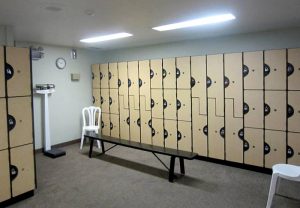
Recently passed legislation in Massachusetts will force women’s locker rooms in health clubs and public swimming pools to accept biological males who claim to identify as women, and churches can also be forced to do the same if they host “secular” events.
Following are points from a Daily Caller article:
— Guidelines for the legislation state that starting October 1, “All persons, regardless of gender identity, shall have the right to the full and equal accommodations, advantages, facilities and privileges of any place of public accommodation.”
— Any place that is open to the public must follow the guidelines or face up to one year in jail. “Any place of public accommodation that lawfully separates access to a place or portion thereof based on a person’s sex, shall grant admission to that place, and the full enjoyment of that place or portion thereof, consistent with the person’s gender identity.” This includes health club and public swimming pool locker rooms.
— The guidelines state, “Even a church could be seen as a place of public accommodation if it holds a secular event, such as a spaghetti supper, that is open to the general public.”
— The legislation also imposes strict standards on employers, requiring them to address employees by their preferred name and pronouns and let them use whatever bathroom that most closely aligns with their “gender identity,” regardless of their biological sex.
— Following is how Massachusetts law defines “gender identity”:
A person’s gender-related identity, appearance or behavior, whether or not that gender-related identity, appearance or behavior is different from that traditionally associated with the person’s physiology or assigned sex at birth. …
The statutory definition of gender identity does not require the individual to have gender affirming surgery or intend to undergo surgery, nor does it require evidence of past medical care or treatment. …
In most situations arising in employment, housing, mortgage services and places of public accommodation, it will not be appropriate to request documentation of an individual’s gender identity. …
In the limited circumstances where it is necessary, an individual’s gender identity may be demonstrated by any evidence that the gender identity is sincerely held as a part of the person’s core identity.